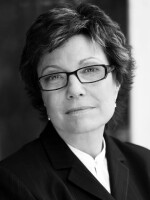STEVE INSKEEP, host:
It's MORNING EDITION from NPR News. I'm Steve Inskeep.
DEBORAH AMOS, host:
And I'm Deborah Amos.
North and South Korea today concluded a three-day summit in Pyongyang. It was the first meeting between the leaders of the divided peninsula in seven years. They signed a pact calling for a new peace treaty that would formally end the Korean War and replace an armistice signed more than 50 years ago.
The conclusion of the summit came a day after North Korea agreed to dismantle its nuclear programs by the end of this year.
NPR's Anthony Kuhn is following events from Beijing, and he joins us now. Good morning.
ANTHONY KUHN: Good morning, Deborah.
AMOS: Give us the events that happened to produce a permanent Korean treaty.
KUHN: Well, it was a three-day meeting in Pyongyang. And at the end of it today, the two sides produced this pact. First of all, the thing calls for an end to aggression between the two sides. And it calls for them to hold talks with their neighbors - the U.S. and China - to put together a new permanent peace regime. The statement also calls for increased contacts across the board, and that means more summit meetings between the two sides, meetings between prime ministers and defense ministers in November, direct air flights between the two sides, reunions of families separated by the Korean War.
Now, of course a lot of things have to happen before we get to this point, and the U.S. and South Korea both want to see North Korea abandon its nuclear programs.
AMOS: This pact also focuses on economic ties. Do you have a sense that North Korea will reform its economy?
KUHN: Well, certainly jumpstarting its very stagnant economy is seen as a precondition for any sort of reconciliation and certainly reunification.
Now, this statement calls for a lot of economic measures, including a joint fishing and economic zone on the west side of the peninsula. It calls for regular freight train service again and fixing up the highway that runs between Kaesong on the border and Pyongyang. And what was interesting was that they talked about this joint economic zone they've got going in Kaesong, and North Korea was apparently not too happy with the pace of development there. They want it to go faster, but at the same time South Korea's president, Roh Moo-hyun, said the North Koreans were very uncomfortable about the idea of opening and reforming their economy.
AMOS: And there are more critics as well. While this all sounds like a positive development, tell us a little bit about those who don't like this.
KUHN: Well, domestically speaking in South Korea, President Roh is in his last four months as president. He's essentially a lame duck, and a lot of people are accusing him of posturing, of coddling the North to help his party in the upcoming elections. Also, people are afraid that this is going to take the pressure off of North Korea. This pact is going to take away attention from the denuclearization process.
And also there's a feeling in South Korea of discontent with seven years of an engagement policy, known as the Sunshine Policy. South Koreans feel that they've shown goodwill, they've given a lot of humanitarian assistance. And in these seven years, the North Koreans have built a nuclear arsenal, tested missiles, and in many ways thumb their noses at the South Koreans.
AMOS: It is a rare event for these two leaders to meet each other. Was this breakthrough about personal diplomacy or was it about diplomacy from Washington?
KUHN: Well, personalities have got to come into play when you've got Kim Jong Il in the picture. And the final picture that came out of this was of the presidents of the two sides holding hands, and it was quite a striking visual contrast. You had the South's Roh Moo-hyun holding up Kim Jong Il's hand like a prizefighter, but looking a little bit more like a dead fish. You had Roh in his carefully groomed hairdo and dark suit and tie, and you had Kim in his trademark sort of half leisure suit, half track suit, platform shoes and pompadour hairdo.
And there were some very funny dynamics between the two. During the first day, Kim was unsmiling. He was sullen-looking. The second day he perked up a lot. And finally, he threw everyone a curve ball. He asked President Roh to stay for an extra day of talks. And eventually Roh had to turn him down, and Kim Jong Il teased a little bit. He said as a president, can't you decide on these things? Presidents should be able to decide. And President Roh just had to say, I can decide on the big things, but not the little ones. This was some of the lighter side that came out of the talks.
AMOS: Thank you very much. NPR's Anthony Kuhn in Beijing on a just concluded summit between North and South Korea. Transcript provided by NPR, Copyright NPR.







